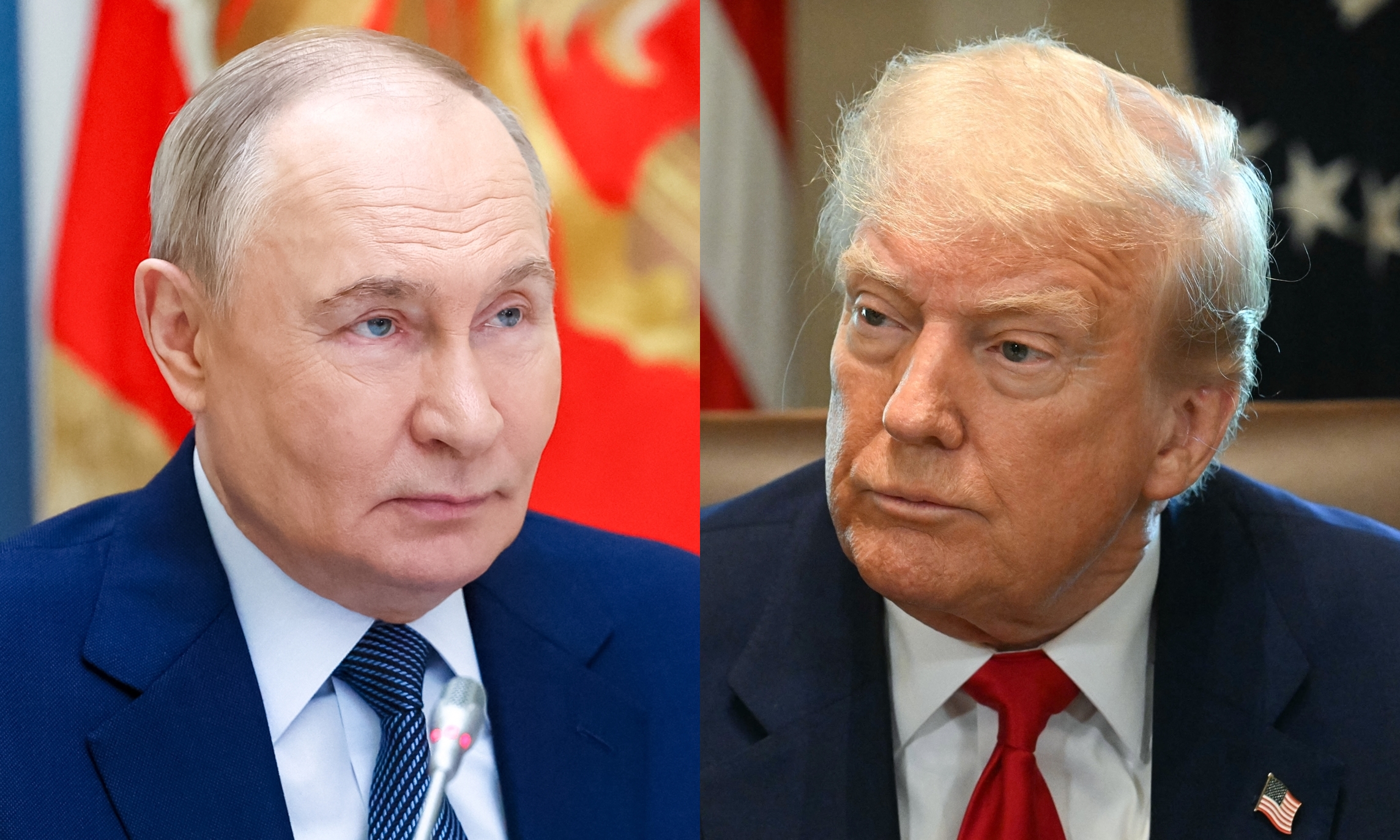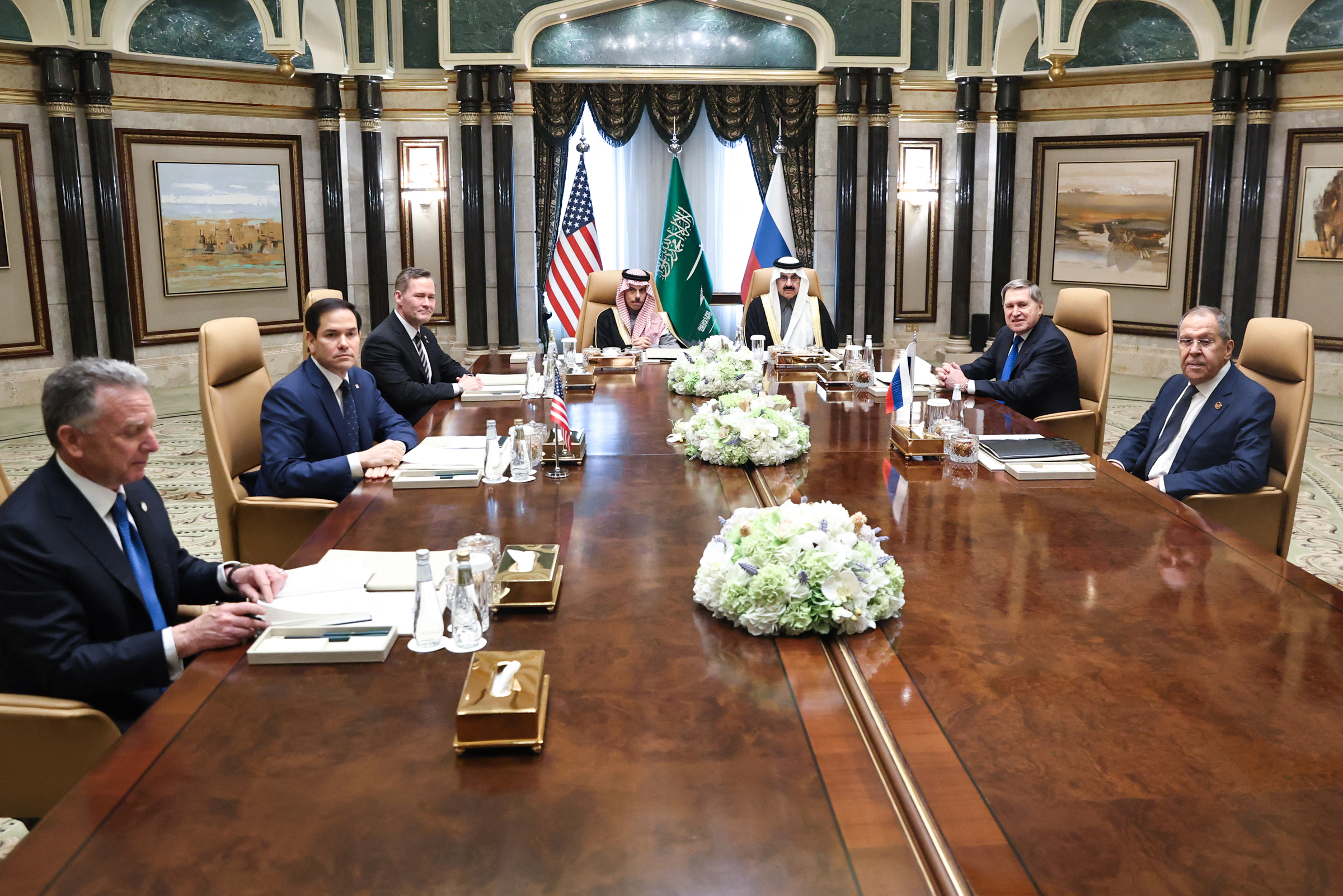The Kremlin confirmed on 7/8 that Russian President Vladimir Putin may meet with former U.S. President Donald Trump in the "next few days," and preparations are underway.
If it takes place, this will be the first meeting between the two leaders since President Joe Biden met with Putin in Geneva, Switzerland, in June 2021, before the Russia-Ukraine war began.
The meeting was planned nearly six months ago, after Trump spoke with Putin on 12/2 and declared the "immediate commencement" of peace talks to end the war in Ukraine.
 |
Former U.S. President Donald Trump (left) and Russian President Vladimir Putin. Photo: AFP |
Former U.S. President Donald Trump (left) and Russian President Vladimir Putin. Photo: AFP
At the time, Trump expressed confidence in his ability to quickly end the conflict, believing his good personal relationship with the Kremlin leader could help bridge their differences.
Trump's supporters argue that his efforts were mischaracterized by the media as being "friendly and submissive" to the Russian leader.
"People misunderstood President Trump's approach," said Fred Fleitz, a National Security Council official during Trump's first term. "Trump doesn't like Putin, he just believes the U.S. must find a way to coexist with Russia. We don't want war, so what can we do?"
Following Trump's outreach to Putin, U.S. and Russian delegations met in person to discuss the war and explore ways to restore bilateral relations. Top diplomats from both sides confirmed they were "preparing for a potential summit."
In the following months, Trump and Putin spoke by phone several times and exchanged messages through intermediaries, sources told the Wall Street Journal.
According to a senior U.S. official, the conversations were amicable. Trump often discussed the goal of reviving U.S.-Russia relations with a focus on increased economic cooperation. Putin outlined his key grievances and desires, primarily international recognition of Russia's annexation of Crimea and four eastern Ukrainian provinces.
The calls sometimes lasted for hours, mainly due to Putin's lengthy statements and the translation process. Trump, often impatient and prone to interrupting, listened attentively, sources said.
"Putin is very methodical," assessed John Bolton, Trump's former national security advisor. "He is knowledgeable and knows what he's talking about. When he wants to influence someone, he just keeps talking and talking."
Fiona Hill, Trump's top Russia advisor during his first term, said Putin had carefully studied the new administration and understood where Russia had leverage with the White House.
"President Putin prepares very thoroughly. He had years to understand President Trump," Hill said. Part of that preparation involved continuing the war while signaling a willingness to engage in diplomacy.
However, as the war showed no signs of ending, Trump's patience began to wane. In March, he expressed "anger" when Putin rejected a U.S. proposal for a 30-day ceasefire. In April, Trump demanded that Putin "stop" after a Russian missile attack on Kyiv, then shared that "maybe he doesn't really want to end the conflict."
Trump grew increasingly frustrated with the slow pace of peace efforts and intensified pressure on both Russia and Ukraine. In early May, Putin proposed that Russia and Ukraine resume direct negotiations without preconditions to establish peace and address the "root causes of the conflict."
However, subsequent face-to-face meetings between Russia and Ukraine yielded no breakthroughs, with discussions primarily focused on prisoner exchanges.
Trump's frustration became publicly apparent at the NATO summit in June, where he criticized Putin for being "wrong" for not wanting to end the war.
"I was very surprised. I thought I could solve it easily," Trump told reporters.
The sixth phone call between the two leaders took place on 3/7 and lasted only about an hour, much shorter than previous calls. U.S. officials said the exchange lacked warmth but was without incident.
Trump later acknowledged that after each call between him and Putin, Moscow seemed to increase its missile and drone attacks on Ukraine.
The former president shifted to pressuring Russia, issuing a 50-day ultimatum to reach a complete ceasefire with Ukraine, or face tariffs and severe sanctions on Russia and its trading partners.
Two weeks later, Trump expressed his frustration when the third round of direct talks between Russia and Ukraine in Turkey failed to make substantial progress. He shortened the ultimatum, setting a new deadline of 8/8.
Yet, Trump seemed reluctant to abandon diplomatic efforts. Two days before the deadline, he sent U.S. special envoy to the Middle East Steve Witkoff to Moscow to negotiate with Putin for about three hours.
The Kremlin described the talks as "useful and constructive," covering the Ukraine conflict and the potential for improving U.S.-Russia relations.
A day later, the White House and the Kremlin confirmed that the two leaders would meet in the "next few days." However, their approaches remain divergent. Trump called on Putin to end the war, showing little concern for the specifics of an agreement. Putin, on the other hand, declared he would only halt the military campaign once his objectives are met.
"We'll see what he has to say," Trump told reporters, referring to Putin. "It's up to him."
 |
U.S. (left) and Russian delegations at the negotiating table in Riyadh, Saudi Arabia, on 18/2. Photo: AFP |
U.S. (left) and Russian delegations at the negotiating table in Riyadh, Saudi Arabia, on 18/2. Photo: AFP
Observers say the summit will be the biggest test of Trump's negotiating skills. He will face a Russian leader with 25 years of experience dealing with U.S. presidents.
If the meeting yields no results, Trump will have to decide whether to further increase pressure on Russia, despite his skepticism about its effectiveness, or abandon the peace effort as he has repeatedly warned.
"Either way, the war will continue," said Alina Polyakova, president of the Center for European Policy Analysis, based in the U.S.
Nhu Tam (According to AP, WSJ)












